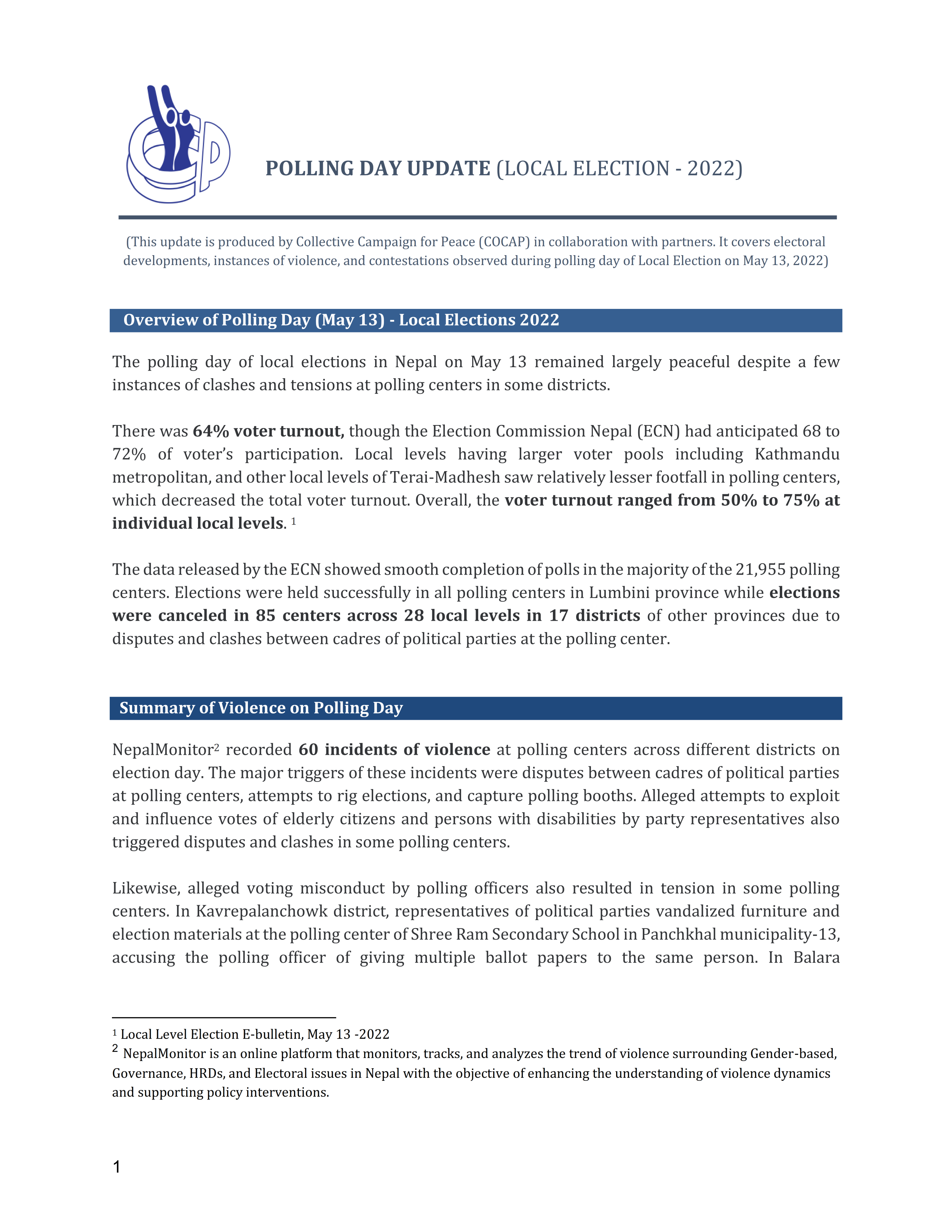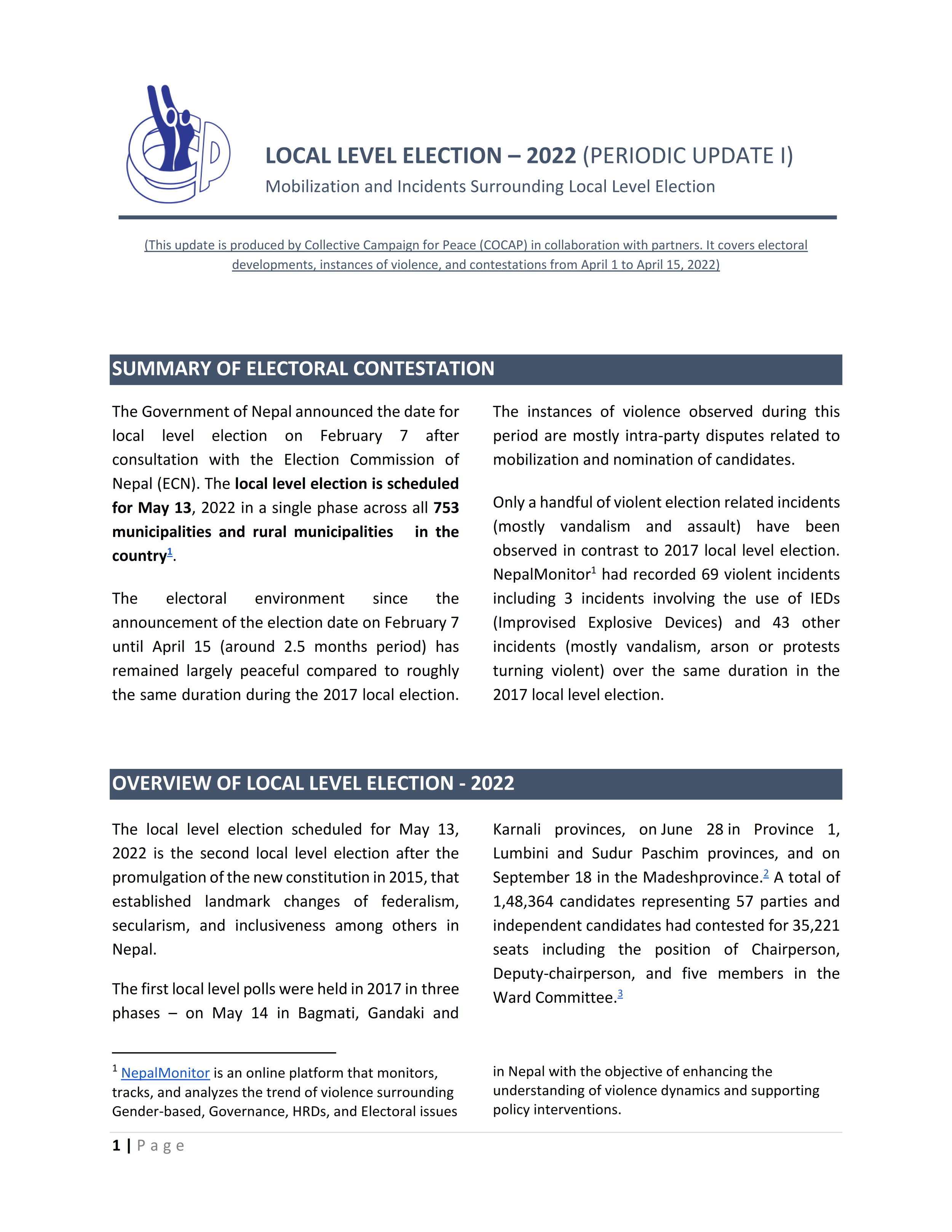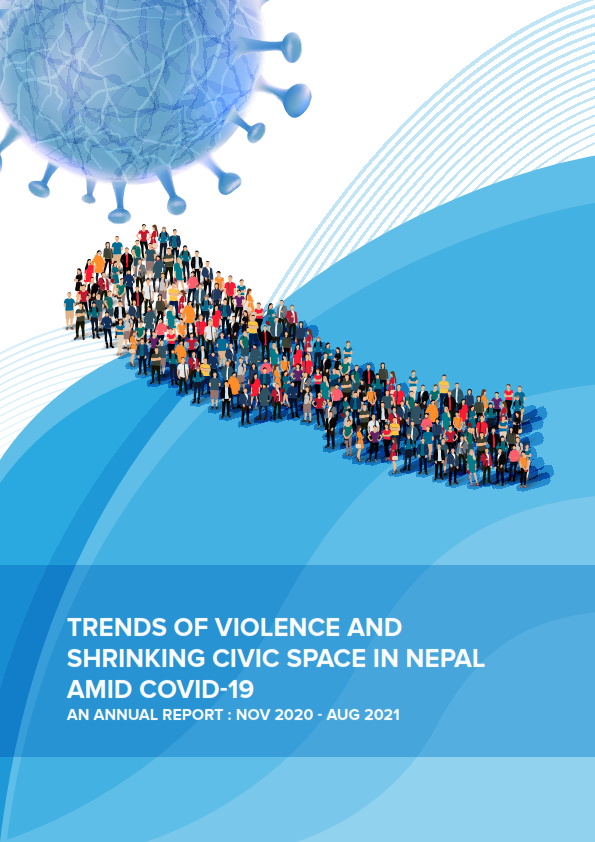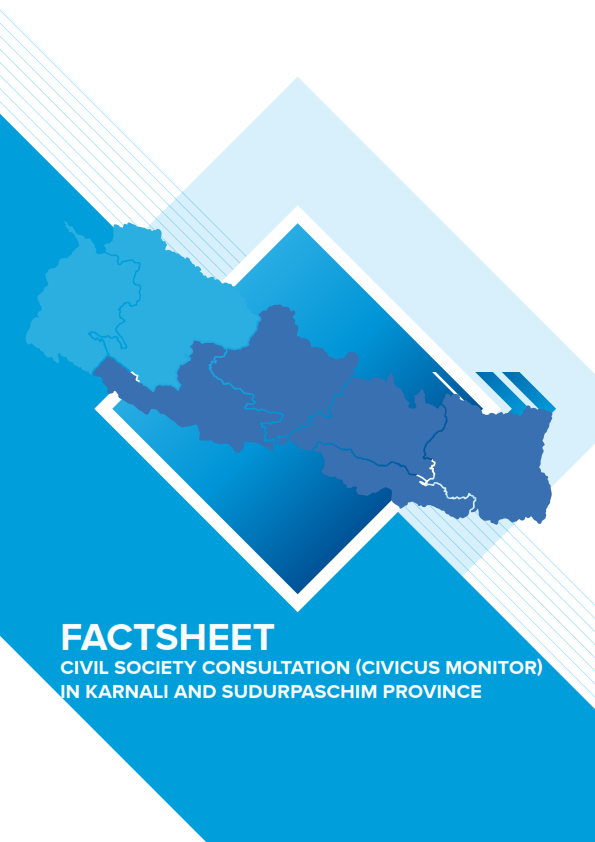Incident Reports
Single women ‘left without access to relief’
2015-09-02
Four months after the earthquake, stories of single women from marginalised communities being sidelined during relief distribution continue to emerge leaving a serious doubt on how they will be incorporated in the rehabilitation process. Jamuna Gurung had no option but to watch her four brothers receive relief as she was forced to return empty-handed. Gurung, 36, from Mirkot, Gorkha, is not married and shares the property with her brothers. However, both her family members and the local authority had no qualms about leaving her out of the relief distribution process and thus denied her from acquiring the ‘red card’ (earthquake victim card). This has left her with no option to rebuild her house.“I had informed the authorities that I am also a member of this family but my siblings did not corporate, but authorities turned a deaf ear to all my pleas,” said Gurung, who currently lives in one of her brother’s cowshed.
According to the spokesperson of National Women Commission Manu Humagain, the commission has received cases of single women and most of them from marginalised communities being left out in the relief process and asking the commission to help them get access to the important ‘red card’ which will help them reconstruct their demolished houses. “We received a lot of such complainants during our field visits and a few written ones too,” said Humagain, adding that a Dalit woman from Taudaha, Kathmandu, had lodged a complaint at NWC specifying that she had been barred from collecting relief simply because of her caste.
A report launched by Inter-Party Women Alliance last month had also stated that single women specifically from marginalised communities had difficulty getting access to relief and recommended equal female participation in the rehabilitation process in order to avoid such instances. Sunita Baram of Bhalumare, Gorkha, has a similar tale. As per Baram, a 42-year-old widow with three daughters, the local society refused to provide her relief and the earthquake victim card after her small hut had demolished in the April 25 quake assuming that they would all eventually elope. “They told me that I along with my daughters would sooner or later elope and that we had no need for relief and the red card,” recalled Baram. The Baram family is living in the fields of their neighbour after their only property was damaged beyond repair.
According to the 2011 census, there are 498,606 single women in the country. It is estimated that around 2,000 women lost their husbands in the earthquake. As per Women For Human Rights, Single Women Group, single women are usually living in substandard housing units and with lower income. In Nepal, there are more than 50,000 directly-affected single women and (widow) and female household heads. As per Lily Thapa, founder of WHR, the earthquake has left single women from marginalised communities living under precarious conditions with very little income and property, and now in even more difficult situation. Existing social norms and prejudice towards single women has only added to their plight. “Initially they were shocked about how to keep their families safe. They did not bother about being left out of the relief distribution.
Now that it is time to rebuild their huts these women are finding out that they have been left in the lurch and slowly speaking out,” said Thapa. She further added that single women need special attention in the rehabilitation process due to the social stigma attached with widows in our patriarchal society and wants a special fund of Rs 50 million to address the needs of single women.
Related Reports
GBV / Siraha
Complaint lodged against a 30-year-old man on the charge of raping a 13-year-old teenage girl in Siraha
GBV / Okhaldhunga
52-year-old man arrested on the charge of sexually assaulting a 16-year-old teen girl in Okhaldhunga
GBV / Humla
Teen boy arrested on the charge of raping a 40-year-old woman in Humla
Governance / Kathmandu
Medical education concern committee protest by banging plates and whistling
Related Trend Analysis
Analysis

THE NEPAL PEACE MONITOR ANNUAL REVIEW: 2020
October 25, 2021
Human Trafficking / LGBT+ Rights / GBV / Political / Children’s Rights / Senior Citizens’ Rights / HRD Issues / Human Rights / Interpersonal Violence / Governance / Covid-19 / Civic-Space / PwD

_001.png)




